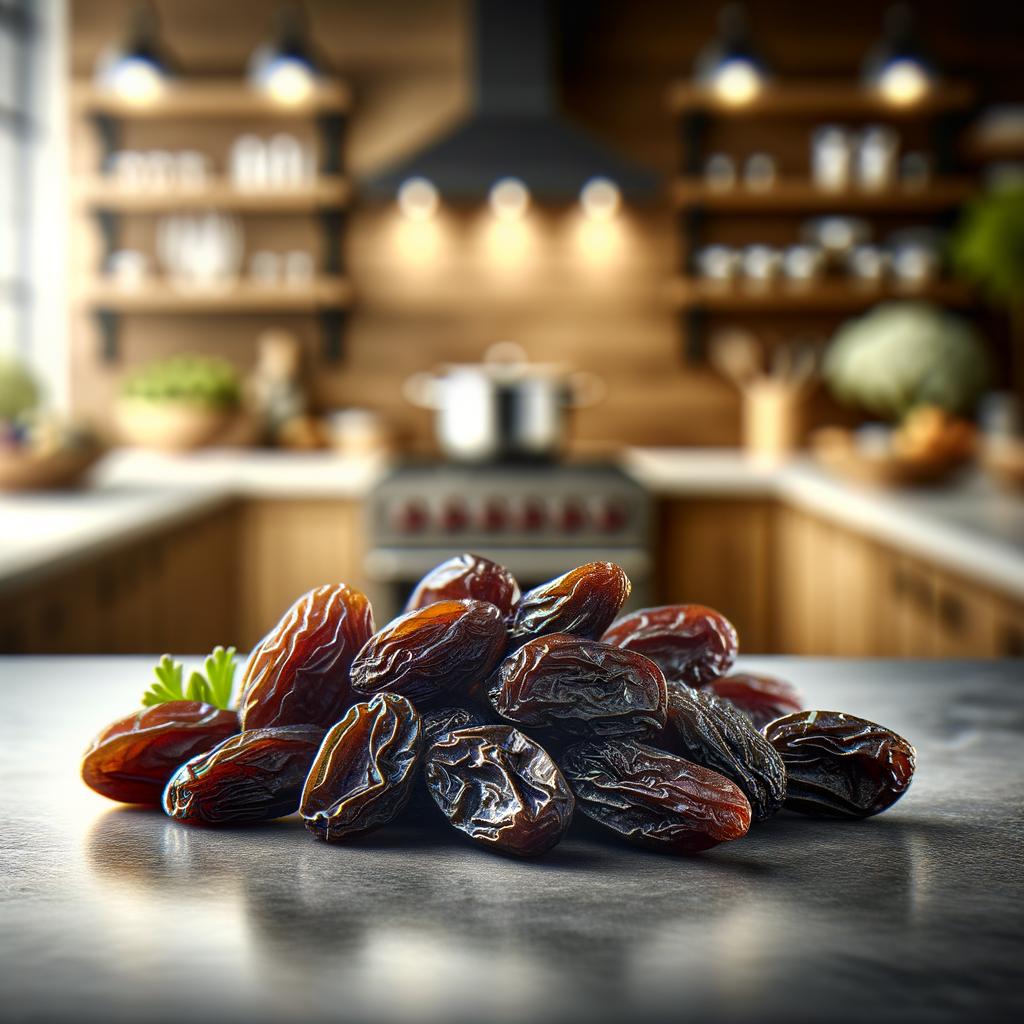Prunes or Raisins

Prunes
Description
Prunes, also known as dried plums, are a delightful ingredient that has been cherished by many cultures throughout history. They are typically a deep, rich purple color, often appearing almost black. Their texture is chewy and dense, with a wrinkled skin that gives way to a sweet, slightly tart interior. Prunes are renowned for their complex flavor profile, balancing between sweet and tart, and often leaving a lingering deep, fruity aftertaste. The unique characteristic that sets prunes apart from other dried fruits is their high fiber content, particularly the soluble fiber called pectin, which aids in digestion.
Primary Uses
Prunes are incredibly versatile in the kitchen. They can be eaten as a snack, used in baking, or even stewed to create a sweet and nutritious compote. Prunes are a key component in many cuisines around the world, from the prune-stuffed gnocchi of Italy to the sweet prune pastries of Scandinavia. They are also used in many traditional Jewish dishes, like tzimmes and kugel. Beyond their culinary uses, prunes have been used for their medicinal properties, particularly as a natural remedy for constipation due to their high fiber content.
History
The history of prunes is as rich and varied as their flavor. The plum tree, from which prunes are harvested, is believed to be one of the first trees domesticated by humans. Prunes have been found in archaeological sites dating back to the Neolithic age. They were highly prized by the ancient Romans, who believed they were an aphrodisiac. In the Middle Ages, prunes were a common sweetener in food, as sugar was a luxury item. The popularity of prunes has waxed and waned over the years, but they have always maintained a place in our diets and our hearts. There's an old folklore that eating a prune at the stroke of midnight will bring good luck and wealth in the coming year.
Nutritional Information
Prunes are a nutritional powerhouse. They are rich in fiber, which aids in digestion and helps maintain a healthy weight. Prunes are also high in vitamins and minerals, including vitamin A, potassium, and iron. They contain antioxidants known as phenols, which can help protect against heart disease and cancer. Compared to other dried fruits, prunes have a lower glycemic index, which means they don't cause a rapid spike in blood sugar levels. However, like all dried fruits, they are high in sugar and should be consumed in moderation.

